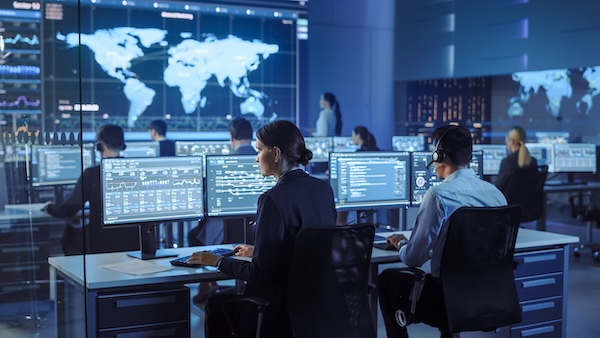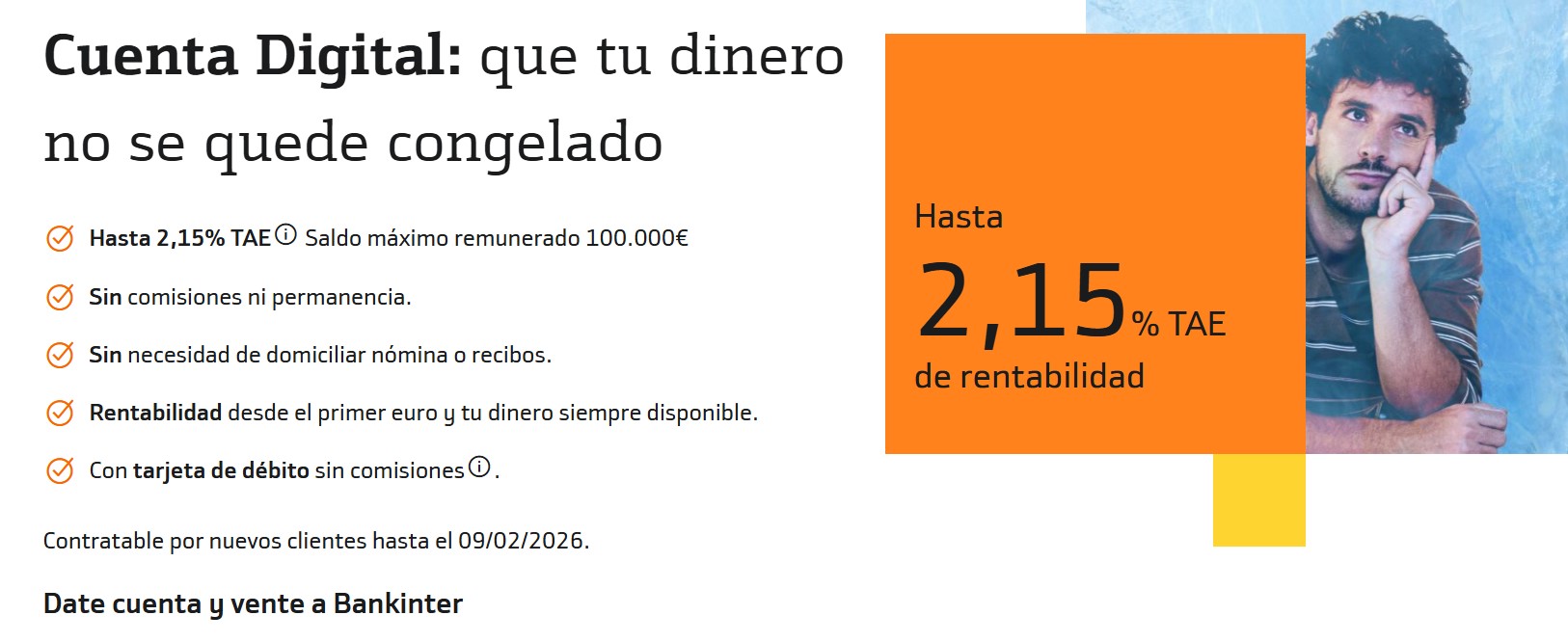The event was held at the Esade Madrid Campus with guest Javier Solana, president of EsadeGeo and former European Union High Representative for Common Foreign and Security Policy
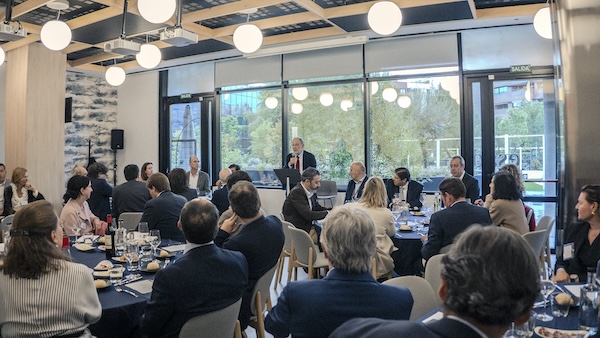
Madrid was the venue of an exclusive new gathering of the Esade Alumni Top Management Network, an initiative designed to bring together alumni in senior management positions. With the goal of fostering debate, sharing challenges, and conveying knowledge in a small, prestigious circle, these colloquia-luncheons are gaining ground as a space of high strategic added value.
This time, it was held at the new Esade Madrid Campus with guest Javier Solana, president of EsadeGeo and former European Union High Representative for Common Foreign and Security Policy. Solana offered an in-depth analysis of the evolution of the world order in the past two decades, highlighting the resumption of competition between the major powers and the erosion of the international liberal order.
The seeds of the conflict
Solana started his talk by reflecting on the past few decades, a period of profound global transformation. He recalled the major events at the turn of the century, like the European Union and NATO’s eastward expansion, which were celebrated as a triumph of liberal values and the post-Cold War peaceful consensus. However, with a premonitory vision, Solana said that “that very moment contained the seeds of the conflict we’re in the midst of today,” referring to the heavy geopolitical tensions that this process prompted in Russia.
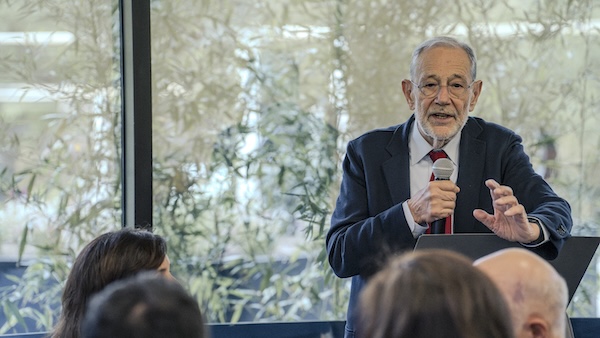
He then surveyed the global war against terrorism, the setbacks in Western interventions in the Middle East, and the inexorable return of hard power politics. This deterioration culminated with Russia’s annexation of Crimea in 2014 and more recently the Soviets’ large-scale invasion of Ukraine in 2022.
Solana warned that the deterioration of the international environment has been aggravated by internal tensions within the liberal democracies themselves. “Terrorism, Brexit, the boom in China, and the rise of the far right and populism have exposed profound fractures,” he said. Looking towards the near future, Solana did not conceal the new uncertainties that have arisen with Donald Trump’s return to the presidency of the United States, which could raise questions about the future of NATO and transatlantic solidarity. “It is a very different world,” he declared.
Solana’s presentation also addressed the ascent of China as a systemic rival and the disruptive impact of emerging technologies, especially artificial intelligence and cybersecurity. This expert claimed that these factors are shaping a global order marked by volatility and fragmentation yet also brimming with opportunities.
The strategic role of Europe and the private sector
En este complejo contexto, Javier Solana defendió con firmeza la necesidad de redefinir el papel de Europa. "Europa no puede permitirse ser Within this complex context, Javier Solana staunchly defended the need to redefine the role of Europe. “Europe cannot allow itself to remain a spectator,” he warned. “We have to be the guardians of democratic values, paragons of international stability, and strategic actors able to engage in politics by ourselves.” He highlighted recent EU initiatives as signs of increasing strategic cohesion, as well as the need to create “coalitions of the willing” for issues that sow the most division; in this vein, he reminded the audience that this was the way the euro entered into force. He also stressed that Europe should boost its regulatory power to support Ukraine and defend human rights.
Solana also said that Europe has to look beyond the Atlantic and underscored Europe’s increasing commitment to the democracies in the Asia-Pacific region and increasingly close ties with Latin America and Africa.
The last part of his talk focused on the emerging role of the private sector in global politics. “Companies are no longer peripheral actors in geopolitics: you are core actors,” Solana stated, making it clear that in today’s environment, neutrality is not an option for the business community. “You business leaders are already part of the conversation on Europe’s strategic future,” he said.
The event concluded with a clear message: Europe has to act with unity, ambition, and strategic clarity. And it should do so in close coordination with the private sector, whose influence on the global geopolitical balance today is more important than ever.
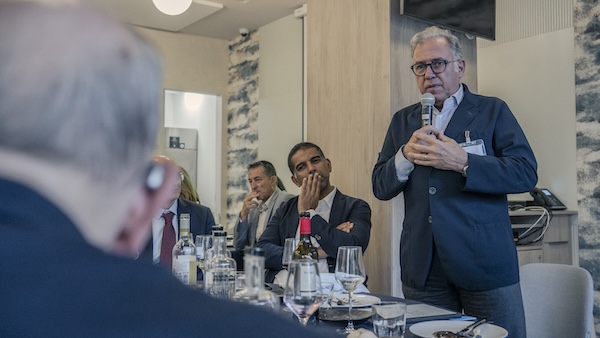
Thanks to Cristina Vicente Ruiz for her assistance in writing this report and Talman Group for sponsoring these Top Management sessions, which are so valuable for the community and executive talent.





